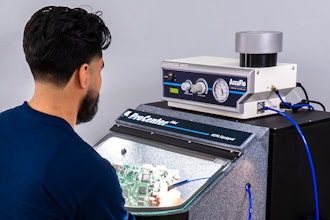
INBRAIN Neuroelectronics, a brain-computer interface therapeutics (BCI-Tx) company developing graphene-based neural technologies, announced the close of a $50 million Series B financing round. The round was led by imec.xpand with new investors EIC Fund, Fond ICO Next Tech, CDTI-Innvierte and Avançsa. Existing investors Asabys Partners, Aliath Bioventures and Vsquared also participated, bringing the total amount raised since inception to $68 million.
In addition to the Series B round, INBRAIN also secured additional funding and support from Merck KGaA to advance the clinical development of its technology in Merck’s therapeutic areas of interest. This partnership will boost the translation of INBRAIN’s platform to human use, expanding its impact across both central and peripheral nervous system applications.
The company’s technology utilizes the unique properties of graphene, a Nobel Prize-winning material known for its strength, flexibility, and conductivity. INBRAIN’s implant is only 10 micrometers thick—thinner than a human hair—and is designed to safely decode and modulate neural signals with exceptional accuracy, offering a new level of performance in the emerging field of precision neurology.
The funding will enable INBRAIN to accelerate the development of its graphene-based BCI-Tx platform, which offers a bidirectional solution to decode and modulate neural activity with unprecedented resolution. The funding will support ongoing clinical trials, enable team expansion and further develop the company’s AI-powered platform for the treatment of neurological-related diseases.
As part of the funding round, INBRAIN is also announcing a collaboration agreement with imec, the world's leading independent nanoelectronics hub. Imec will support INBRAIN in preparing to scale graphene interfaces at a commercial level.
INBRAIN recently achieved a major milestone with the world’s first human application of its graphene-based BCI in an ongoing clinical trial at Salford Royal Hospital in Manchester, UK. The trial aims to evaluate the safety of INBRAIN’s device in patients with brain cancer and will enroll up to ten participants to assess the superiority of graphene over traditional materials for neural applications.






















